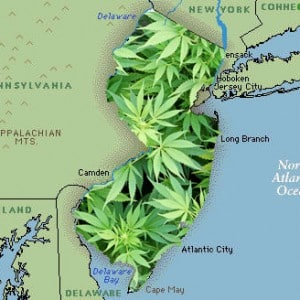 “High”lighting the Hurdles of NJ’s Medical Marijuana Regulations
“High”lighting the Hurdles of NJ’s Medical Marijuana Regulations
Joseph Stevens, Greenleaf Compassion Center (A NJ Non-Profit Corporation) and his staff have been carefully studying and researching state medical marijuana laws and successful business models around the country for more then four years. They are well-versed not only in these state laws, but also in safe procurement methods, quality patient care, and perhaps most importantly, how to responsibly and professionally provide medical marijuana to seriously, often terminally ill New Jersey residents. It is clear that New Jersey must demonstrate the ability to provide medical marijuana in the most restrictive and responsible manner, serving as a template for other states. We do applaud the efforts of Dr. Walsh and her staff to create a program that not only benefits the patient population of NJ, but also restricts access to only the people in need. However, the regulations put forth would create a business environment that is not conducive to functioning properly, first and foremost for the patient, and secondarily for the small business owner.
The draft regulations allow for four main centers with the option for each center to have one satellite location, eight centers total to dispense medication. Also included in the regulations is the creation of two growing facilities for the entire state of NJ. This type of program leaves the dispensing facilities at the mercy of the growers and also creates a monopoly that restricts fair and competitive business practices. Greenleaf Compassion Center asks the State to consider giving all treatment centers the capability to grow medication; half of the medication (1 ounce/month for each registered patient with the center) being grown at the Alternative Treatment Centers that dispense the medication and the two main growing facilities to grow and manage the needs of half the entire patient population. This will reduce cost for the smaller treatment centers and ultimately for patient, creating a competitive business environment and ensuring the survival of each entity. Without the ability to cultivate their own medication, the dispensaries will not be able to meet their daily business expenses and will ultimately fail. After careful cost analysis, having two main growers in NJ, price per gram would exceed $70.00. After adding both centers’ mark-up for expenses, the cost per gram could be in excess of $150.00. This far exceeds the national average of $20.00 per/gram and will force patients to seek out black market dealers and force legally registered centers out of business.
·
The draft regulations limit the number of strains that can be grown to three for each of the two growers. There are many strains of medical marijuana and the various strains provide different types of relief for different symptoms (e.g. pain, nausea, muscle spasms). By keeping the three strain restriction, the availability of quality medicine will restrict proper treatment and limit the effectiveness of this program. . If the State truly wants to ‘lead by example,’ we must find a middle ground between proper treatment and controlled access. Many of our fellow statesmen, neighbors, friends and family members are suffering, we owe it to them to supply them with a controlled, fair plan that will adequately address their needs while satisfying the need for strict regulations that our state is striving for. Many medical breakthroughs have been made over the past few years with medical marijuana and it is our firm belief that if the state limits THC content and available strains, it will fall behind in a growing industry that has the potential generate the taxes needed to assist the State with it’s budgetary considerations in the years to come.
·
The draft regulations limit the amount of THC that any strain can have to 10 percent. No other state that allows access to medical marijuana has such a rule and it is impractical and impossible to limit the amount of THC that a plant will produce. This can be compared to growing tomato plants and trying to limit each plant to only grow three tomatoes. Dr. Walsh also mentioned that there are private firms that have the capability to test for THC levels within the medication. While her statement is correct, these private entities will not take on the responsibility due to federal penalties that may be imposed upon them. The only possible alternative for testing THC levels is to do them in-house or have the State take on that responsibility.
·
The draft regulations call for a $200.00 fee for a patient or caregiver registry cards. While there is a reduced fee of $20.00 for patients in one of several low income programs (e.g. SSI), this will still leave the majority of patients paying an exorbitant fee of $200.00, which will be the highest in the country. Caregivers will also have to pay the fee, adding to the burden. There needs to be a sliding scale for patient registry card prices. Please consider raising the $20,000.00 application fee to $40,000.00 and reduce the patient registration fee. In comparison to other licenses in the state (i.e. liquor licenses) a $40,000.00 licensing fee and renewal fee is more than fair.
Repeatedly, Governor Christie has stated his desire to protect NJ from becoming another California or Colorado calamity with respect to marijuana dispensaries. If these states were operating as poorly as the Governor claims, reforms would have been passed and restrictions put in place. This has not occurred. Regulations that may appear lax in some states were indeed put into place for control yet balancing this with the existing Federal laws and still being able to respect and protect patient rights for access to much needed medication.









